It's time to grow up for IT communities: why do we gather activists at RHS?
This year, within the framework of RIT ++, a meeting of activists of Russian-speaking IT communities will take place for the first time. I will tell you about what the event will be like and how it will affect the festival itself and the work of these organizations.
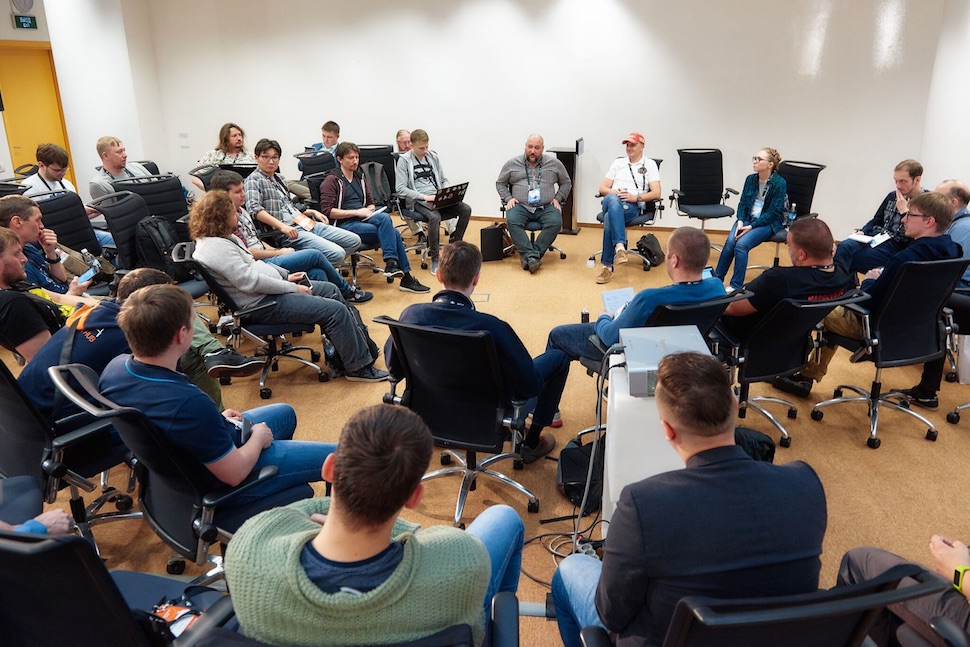
In recent years, we have discussed a lot about who and how the ecosystem in which we live and work is formed.
Experts who appreciate the benefits of the new solution begin to communicate with each other, meet and think through the implementation. Like-minded people adjoin them. This forms the core of the IT community, which eventually grows and begins to live an independent life.
Bringing together hundreds and even thousands of people, the community holds meetings, organizes podcasts, or even supervises sections at industry conferences. In some cases, communities create their own conferences. In essence, our RHS ++ began the same way - with a meeting of a small group of like-minded people. Thanks to a group of communities that have united around the festival idea, it becomes more interesting every year - after all, representatives of industry organizations are included in program committees, raise relevant topics and delegate speakers, helping them prepare for larger presentations at their own meetings.
')
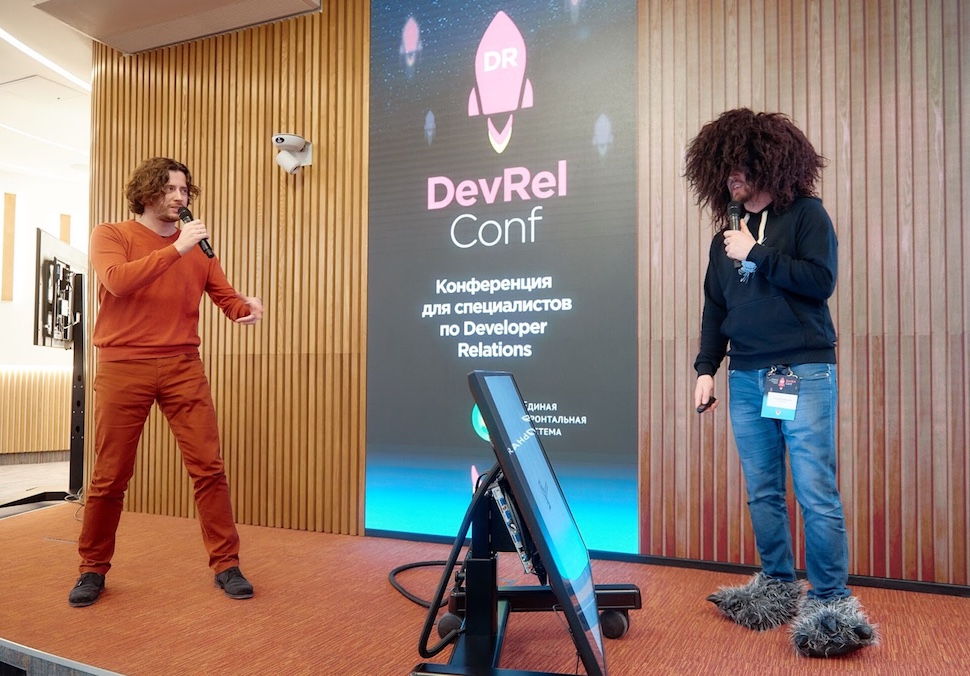
IT communities grow fairly quickly, but their life still depends on a few key figures that give the necessary drive. Without them, the activity of any community gradually fades away. This year we decided to express our gratitude to the activists, who in different cities of our large country are drawing technological communities behind them, initiating and organizing meetings and the main engine of new projects. We invite them to our festival free of charge, providing flights, accommodation and tickets for access to any RIT ++ events. I would say that this is our feasible contribution to the development of the ecosystem. To be honest, we dreamed of something similar before. But only this year RHS ++ has reached such proportions that we could afford it.
There were a lot of applications for the event from the communities. Unfortunately, we all could not satisfy. But we tried to collect the most representative party. Our only formal condition was that the community should be “alive” - we wanted to see that the participants meet regularly, generate some kind of activity, benefit in their field. In other words, the activities of the IT community should be noticeable.
In total, we invite about 70 people from 50 communities. We bring one representative from each of them completely at our own expense (paying for tickets to Moscow, and accommodation, and visiting RHS ++), and a couple can stay with us and get access to all the festival events if they get to Moscow on their own.
Each of the invited activists is widely known within his group. Among our guests will be representatives of the JavaScript communities of Moscow, Minsk, Penza, St. Petersburg and other cities, the CSS community of Moscow, IT girls from Riga, Python programmers from Novosibirsk and many others. There is even a scientific community Kron, whose goal - the development of national science, education system, as well as the production and culture of the Russian Federation (here is a complete directory of communities ).
Of course, we are not collecting all; According to our data, in Russia at least a couple of hundred active communities. But we have to start with something.
We are not the first to initiate communication among representatives of the IT communities under the same roof. In each city there are some local stories - shared resources or meetings, for example, chat frontendders. Yes, and in the framework of other conferences there are study junior days, free tickets and discounts for students of specialized universities or activists of relevant movements. However, on this scale, the Russian IT industry, perhaps, has not yet been assembled.

The meeting should have a positive impact primarily on RIT ++ itself. Just imagine: on our site, about fifty professionals, the most enterprising representatives of the Russian IT industry, will gather with our submission. Thanks to them, the festival will be even more interesting.
Enrichment with personalities RIT ++ is not the only purpose of the collection. Within the framework of the DevRel conference (developer relations), which we hold for the fourth time, we are preparing a separate track for activists of IT communities with reports on various aspects of the functioning of such industry associations and practices of their interaction with the industry. A series of reports are selected in such a way as to help the organizers in their work on promoting and developing the initiative.

Why do the communities need this “pumping”?
According to my observations, on the background of IT communities in other countries of the world, Russian organizations are less active. Many foreign IT-communities hold their conferences, develop their own tools or write books. For example, the PostgreSQL database is developed primarily by the international PostgreSQL community.
In our country, activity is limited to organizational issues, the largest of which are conferences, for example, Ruby and Python communities. At the same time, the development of technologies that could be widely used is more conducive to large companies - Yandex, Mail.Ru, Avito and the like. Yes, we also have, for example, the PostgreSQL database community, but it holds mitaps, and specific companies are developing modules for this DBMS.
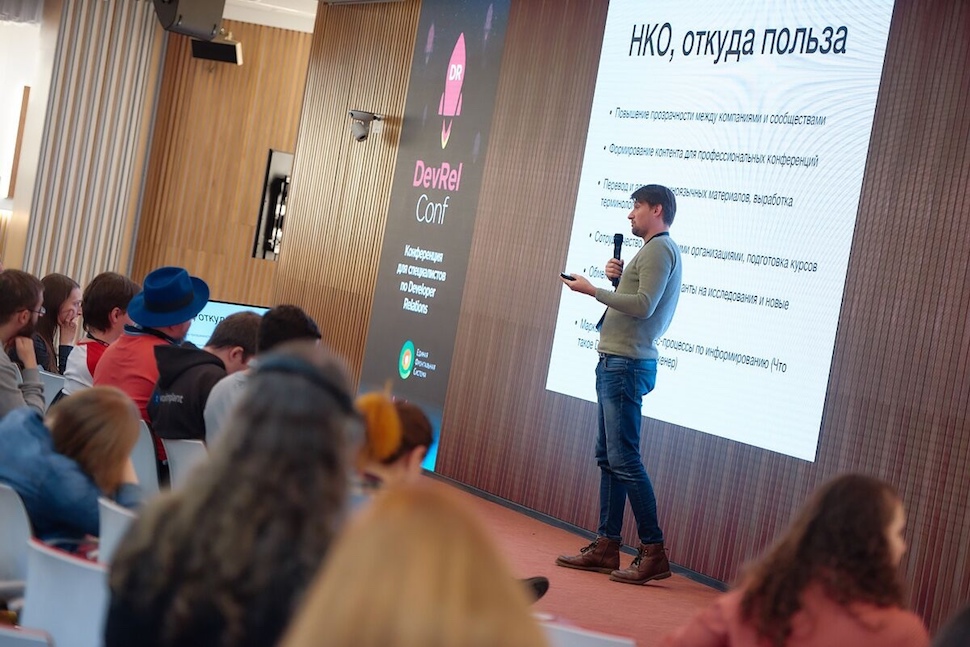
The contribution of Russian-speaking IT-communities to the global IT-industry is small (if it exists at all). In my opinion, this is not entirely correct.
The participation of IT communities in both Russian and global industry could be much bigger. However, for this it is necessary not only to increase their organizations quantitatively, but also to increase the degree of involvement of their participants in the main activity, to establish internal coordination. Unfortunately, by itself, we will not succeed. Probably, this is our national trait - we are not used to self-organizing. What is self-government, what is the yard subbotnik-we need a command from above. But, I hope, the influence of RHS ++ will help communities overcome this barrier and move on to more complex and useful tasks.
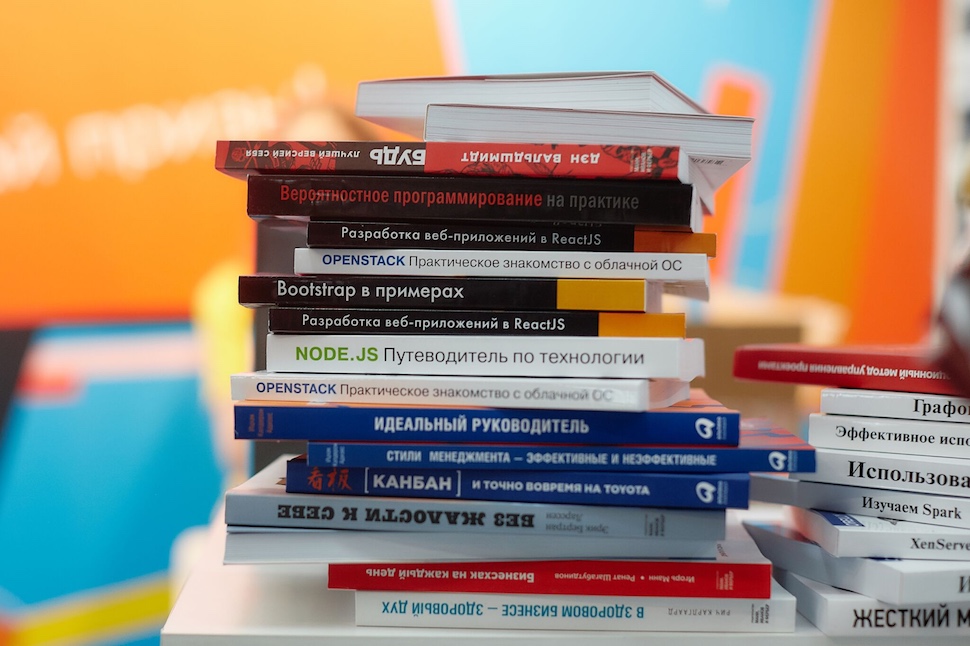
As part of the track for activists, we plan to conduct a brainstorm on the topic “what else can communities do for the development of the IT industry and how their activities can be monetized”.
While they simply can not do this: there are no legal entities that allow to pay for the work of activists or their expert opinion. Big business, after all, cannot operate in cash - it needs a counterparty from the opposite side. But the need for expert participation of IT communities in the fate of technology from business already exists. Even we, the organizers of RHS ++, could commercially involve non-profit organizations in the formation of a program or in the translation of specialized literature for publication, for example, on the eve of the next HighLoad. Now there is nowhere to go with such tasks, and this is the development and popularization of technology - that is, the activity for which the IT communities are created.

IT communities and big business are two different worlds that need help in the process of finding a common language - effective mechanisms of interaction in the Russian realities. And I hope RIT ++ will provide this support.
Monetization is only one of the topics that we want to raise within our track for activists. Separately, we will talk about the "burning out" of volunteers - why it happens and how to work with it, about the formation of communities around the business without losing the basic "technological" meaning, about keeping a professional blog. Another important topic is the work with newbies, which is necessary for the IT community to continue to exist after a few years.
Almost all section speakers for activists are themselves members of popular IT communities. In fact, we will organize a platform for the exchange of experience, but not within the framework of one industry organization, but between them. In addition to useful reports, activists are awaited by networking, interaction with specialists in various industries, and, finally, an informal party.
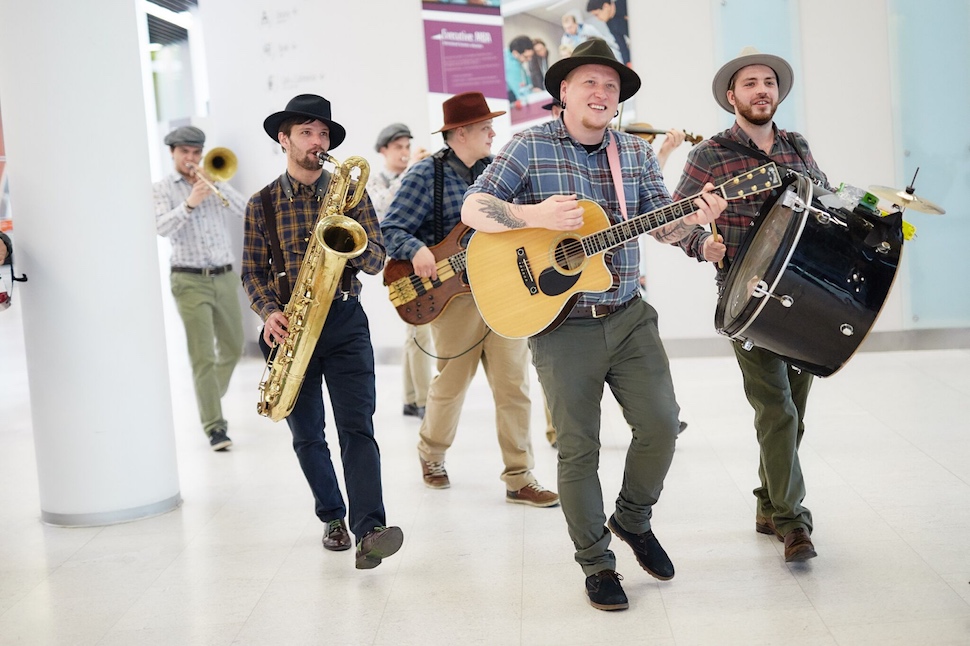
We have not forgotten about those community members who cannot personally visit RIT ++. Therefore, we planned a free live broadcast of all reports from DevRel, within which a rally of activists was organized.
I hope the exchange of experience and new knowledge will push the community towards growing up.

In recent years, we have discussed a lot about who and how the ecosystem in which we live and work is formed.
We analyzed both Russian and foreign experience and found a pattern: a new large-scale technology is beginning to be seriously introduced not from large companies, as is commonly believed, but when a certain group of people are gathered around it who are interested in it.
Experts who appreciate the benefits of the new solution begin to communicate with each other, meet and think through the implementation. Like-minded people adjoin them. This forms the core of the IT community, which eventually grows and begins to live an independent life.
Bringing together hundreds and even thousands of people, the community holds meetings, organizes podcasts, or even supervises sections at industry conferences. In some cases, communities create their own conferences. In essence, our RHS ++ began the same way - with a meeting of a small group of like-minded people. Thanks to a group of communities that have united around the festival idea, it becomes more interesting every year - after all, representatives of industry organizations are included in program committees, raise relevant topics and delegate speakers, helping them prepare for larger presentations at their own meetings.
')

IT communities grow fairly quickly, but their life still depends on a few key figures that give the necessary drive. Without them, the activity of any community gradually fades away. This year we decided to express our gratitude to the activists, who in different cities of our large country are drawing technological communities behind them, initiating and organizing meetings and the main engine of new projects. We invite them to our festival free of charge, providing flights, accommodation and tickets for access to any RIT ++ events. I would say that this is our feasible contribution to the development of the ecosystem. To be honest, we dreamed of something similar before. But only this year RHS ++ has reached such proportions that we could afford it.
Invited activists - who are they?
There were a lot of applications for the event from the communities. Unfortunately, we all could not satisfy. But we tried to collect the most representative party. Our only formal condition was that the community should be “alive” - we wanted to see that the participants meet regularly, generate some kind of activity, benefit in their field. In other words, the activities of the IT community should be noticeable.
In total, we invite about 70 people from 50 communities. We bring one representative from each of them completely at our own expense (paying for tickets to Moscow, and accommodation, and visiting RHS ++), and a couple can stay with us and get access to all the festival events if they get to Moscow on their own.
Each of the invited activists is widely known within his group. Among our guests will be representatives of the JavaScript communities of Moscow, Minsk, Penza, St. Petersburg and other cities, the CSS community of Moscow, IT girls from Riga, Python programmers from Novosibirsk and many others. There is even a scientific community Kron, whose goal - the development of national science, education system, as well as the production and culture of the Russian Federation (here is a complete directory of communities ).
Of course, we are not collecting all; According to our data, in Russia at least a couple of hundred active communities. But we have to start with something.
We are not the first to initiate communication among representatives of the IT communities under the same roof. In each city there are some local stories - shared resources or meetings, for example, chat frontendders. Yes, and in the framework of other conferences there are study junior days, free tickets and discounts for students of specialized universities or activists of relevant movements. However, on this scale, the Russian IT industry, perhaps, has not yet been assembled.

The meeting should have a positive impact primarily on RIT ++ itself. Just imagine: on our site, about fifty professionals, the most enterprising representatives of the Russian IT industry, will gather with our submission. Thanks to them, the festival will be even more interesting.
Separate stream for IT communities
Enrichment with personalities RIT ++ is not the only purpose of the collection. Within the framework of the DevRel conference (developer relations), which we hold for the fourth time, we are preparing a separate track for activists of IT communities with reports on various aspects of the functioning of such industry associations and practices of their interaction with the industry. A series of reports are selected in such a way as to help the organizers in their work on promoting and developing the initiative.

Why do the communities need this “pumping”?
According to my observations, on the background of IT communities in other countries of the world, Russian organizations are less active. Many foreign IT-communities hold their conferences, develop their own tools or write books. For example, the PostgreSQL database is developed primarily by the international PostgreSQL community.
In our country, activity is limited to organizational issues, the largest of which are conferences, for example, Ruby and Python communities. At the same time, the development of technologies that could be widely used is more conducive to large companies - Yandex, Mail.Ru, Avito and the like. Yes, we also have, for example, the PostgreSQL database community, but it holds mitaps, and specific companies are developing modules for this DBMS.

The contribution of Russian-speaking IT-communities to the global IT-industry is small (if it exists at all). In my opinion, this is not entirely correct.
The participation of IT communities in both Russian and global industry could be much bigger. However, for this it is necessary not only to increase their organizations quantitatively, but also to increase the degree of involvement of their participants in the main activity, to establish internal coordination. Unfortunately, by itself, we will not succeed. Probably, this is our national trait - we are not used to self-organizing. What is self-government, what is the yard subbotnik-we need a command from above. But, I hope, the influence of RHS ++ will help communities overcome this barrier and move on to more complex and useful tasks.

Reasonable monetization
As part of the track for activists, we plan to conduct a brainstorm on the topic “what else can communities do for the development of the IT industry and how their activities can be monetized”.
I want to note that the discussion will go not about “corruption”, but about a certain growing up of organizations, transition to more complex expert tasks for which the industry (represented by large companies) can and wants to pay.
While they simply can not do this: there are no legal entities that allow to pay for the work of activists or their expert opinion. Big business, after all, cannot operate in cash - it needs a counterparty from the opposite side. But the need for expert participation of IT communities in the fate of technology from business already exists. Even we, the organizers of RHS ++, could commercially involve non-profit organizations in the formation of a program or in the translation of specialized literature for publication, for example, on the eve of the next HighLoad. Now there is nowhere to go with such tasks, and this is the development and popularization of technology - that is, the activity for which the IT communities are created.

IT communities and big business are two different worlds that need help in the process of finding a common language - effective mechanisms of interaction in the Russian realities. And I hope RIT ++ will provide this support.
Monetization is only one of the topics that we want to raise within our track for activists. Separately, we will talk about the "burning out" of volunteers - why it happens and how to work with it, about the formation of communities around the business without losing the basic "technological" meaning, about keeping a professional blog. Another important topic is the work with newbies, which is necessary for the IT community to continue to exist after a few years.
Almost all section speakers for activists are themselves members of popular IT communities. In fact, we will organize a platform for the exchange of experience, but not within the framework of one industry organization, but between them. In addition to useful reports, activists are awaited by networking, interaction with specialists in various industries, and, finally, an informal party.

We have not forgotten about those community members who cannot personally visit RIT ++. Therefore, we planned a free live broadcast of all reports from DevRel, within which a rally of activists was organized.
I hope the exchange of experience and new knowledge will push the community towards growing up.
Source: https://habr.com/ru/post/359118/
All Articles